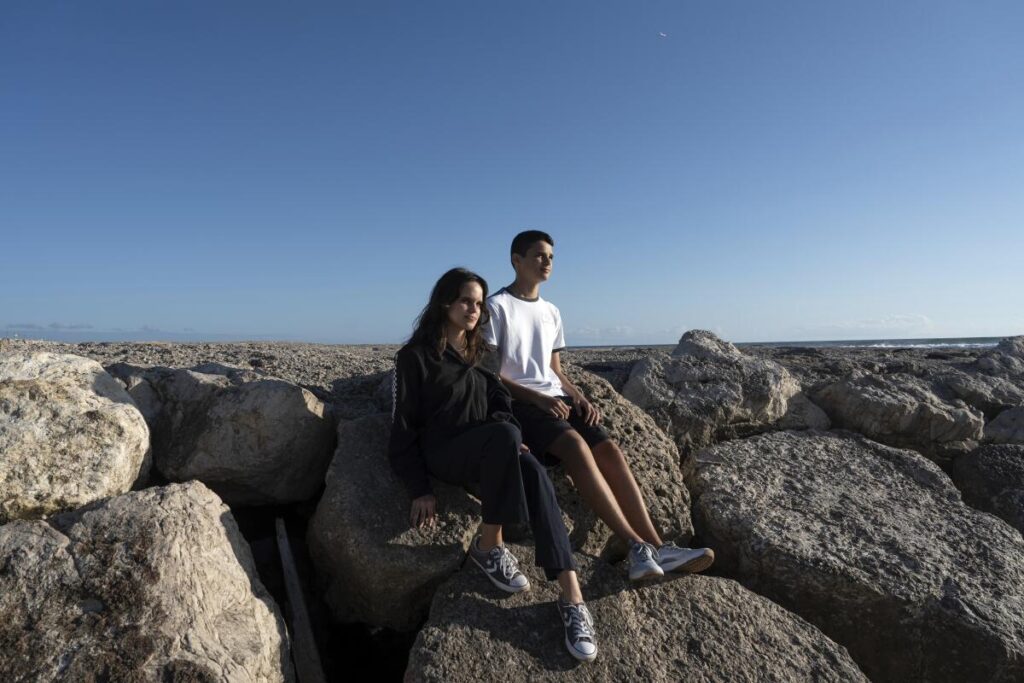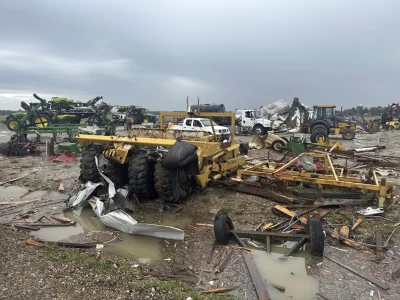
Sofia Oliveira was 12 years old when catastrophic wildfires in central Portugal killed more than 100 people in 2017. She “felt it was now or never to raise our voices” as her country appeared to be in the grip of deadly human-caused climate change.
Now a university student, Sofia and five other Portuguese young adults and children between 11 and 24 years of age are due on Wednesday at the European Court of Human Rights, where they are accusing 32 European governments of violating their human rights for what they say is a failure to adequately address climate change. It’s the first climate change case filed with the court and could compel action to significantly slash emissions and build cleaner infrastructure.
Victory for them in Strasbourg would be a powerful instance of young people taking a legal route to force their governments to adopt a radical recalibration of their climate measures.
The court’s rulings are legally binding on member countries, and failure to comply makes authorities liable for hefty fines decided by the court.
The courts are increasingly seen by activists as a way of sidestepping politics and holding governments to account. Last month, in a case brought by young environmental activists, a judge in the U.S. state of Montana ruled that state agencies were violating their constitutional right to a clean and healthful environment by allowing fossil fuel development.
When the Portuguese group decided in 2017 they would pursue legal action, Sofia wore braces on her teeth, stood taller than her younger brother André and was starting seventh grade at school. The braces are long gone and André, who is now 15, is taller than her by a few centimeters (an inch or so).
The past six years, André noted in an interview with The Associated Press, represent almost half of his life.
What has kept them going through the piles of legal documents gathered by the nonprofit group supporting them and through lockdowns during the COVID-19 pandemic is what they call the pressing evidence all around them that the climate crisis is getting worse.
The Praia do Norte beach at Costa da Caparica near where Sofia and André live, just south of the Portuguese capital Lisbon, was about 1 kilometer (3,000 feet) long when his father was his age, André says. Now, amid coastal erosion, it measures less than 300 meters (1,000 feet). Evidence like that led him to attend climate demonstrations even before he became a teen.
The other four members of the Portuguese group — Catarina, Cláudia, Martim and Mariana — are siblings and cousins who live in the region of Leiria in central Portugal where summer wildfires are common.
Scientists say the climate of the Sahara is jumping across the Mediterranean Sea to southern European countries like Portugal, where average temperatures are climbing and rainfall is declining. Portugal’s hottest year on record was 1997, followed by 2017. The four driest years on record in the country of 10.3 million people have all occurred since 2003.
It’s a similar story across Europe, and the legal arguments of the six Portuguese are backed by science. The Earth sweltered through its hottest Northern Hemisphere summer ever measured, with a record warm August capping a season of brutal and deadly temperatures, according to the World Meteorological Organization.
The world is far off its pledge to curb global warming, scientists say, by cutting emissions in line with the requirements of the 2015 Paris climate accord. Estimates say global average temperatures could rise by 2 to 4 degrees Celsius (2.6 to 7.2 Fahrenheit) since pre-industrial times by 2100 at current trajectories of warming and emissions reductions plans.
Among the specific impacts listed by the young Portuguese are being unable to sleep, concentrate, play outside or exercise during heat waves. One of their schools was closed temporarily when the air became unbreathable due to wildfire smoke. Some of the children have health conditions such as asthma that makes them more vulnerable to heat and air pollution.
They are being assisted by the Global Legal Action Network, an international nonprofit organization that challenges human rights violations. A crowdfunding campaign has drawn support from around the world, with messages of support coming from as far away as Japan, India and Brazil.
Gerry Liston, a GLAN legal officer, says the 32 governments have “trivialized” the case. “The governments have resisted every aspect of our case … all our arguments,” he said.
André describes the governments as “condescending.” Sofia adds: “They don’t see climate as a priority.”







